The Nine Best Cell Phones In Games
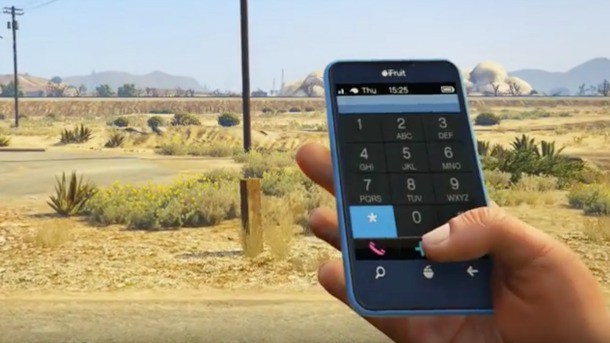
Cell phones. Those little doodads in our pockets that allow us access to a world of information and social media platforms at the press of a touchscreen. Oh, and you can call people on them, too, apparently. As mobile devices have become an inescapable tool in the modern world, so have they risen to prominence in video games. Here are the most noteworthy uses of cell phones in video games.

Grand Theft Auto IV and V (PS4, Xbox One, PS3, 360, PC)
Who can forget the incessant calls from your cousin Roman to go bowling while you’re running guns and drugs for the mafia? Grand Theft Auto IV’s cell phone might not sound that great on paper; it let you make calls, set up meetings with friends, change the wallpaper – all very normal stuff for a phone. However, its mundane and essential nature makes it one of the first phones in a game that did a decent job drawing attention to how ingrained mobile phones have become in our culture. Part of the reason that Liberty City felt so real was Niko’s cell phone, since it served as a line to all his friends and business contacts, as well as the occasional mission that required you to use its endearing but grainy camera functionality.
Grand Theft Auto V appropriately took that combination to the next level by allowing you to access social-media networks and the internet via your phone so that you too could become one of those dweebs walking around Los Santos with your eyes glued to the screen. Rockstar’s dedication to recreating and satirizing our obsession with the internet and phones in GTA V is one of the more interesting bits of world-building done in the game, which is a rather high bar to cross when you realize just how well made and true to life Los Santos feels. Using your phone to input and store cheat codes is also pretty rad.
Andrew Reiner scored the rereleases of Grand Theft Auto IV a 9.75. You can read his review here.
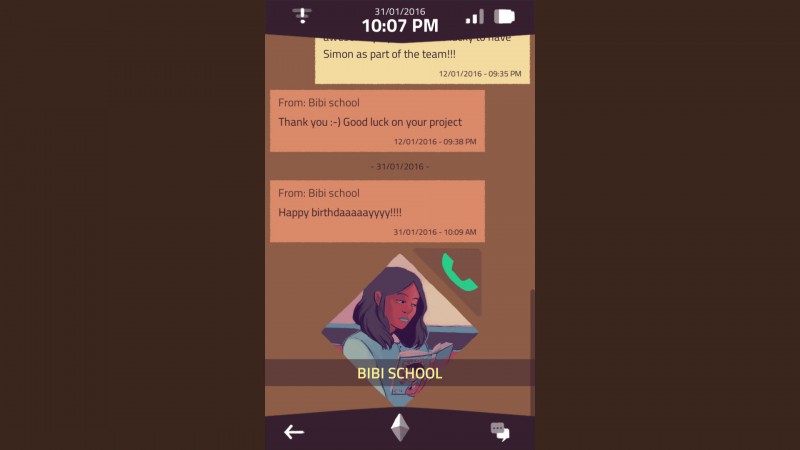
A Normal Lost Phone (PC, Mobile)
A Normal Lost Phone is an indie game where you find a misplaced phone and try to learn about the person who lost it. It's an interesting title whose storytelling has been criticized for having nothing to say, but the interface and novelty of the plot are still interesting enough to warrant a playthrough and showcase an interesting experience where the world you inhabit is literally a cell phone.
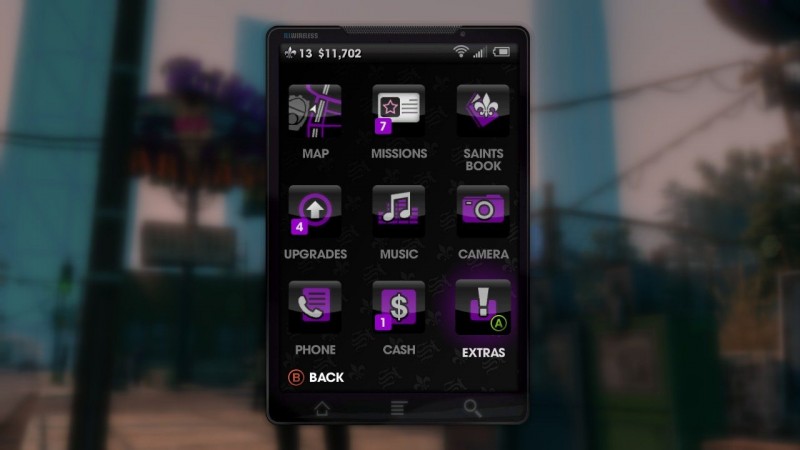
Saints Row The Third and Saints Row IV (PS4, Xbox One, PS3, 360, PC)
Saints Row has often gotten flack for being a Grand Theft Auto clone, and with earlier entries you can see the fairness of that criticism. However, with Saints Row The Third, Volition leaned hard into the inherent zaniness that’s always been a part of the series. Where Grand Theft Auto is content to have you live out the best bits of mob and heist movies, Saints Row instead has you trying to drive a car while a tiger mauls you or bonding in a Matrix-like simulation with a buddy while the two of you sing Biz Markie’s “Just A Friend.”
The cell phone in The Third and IV basically function as zanier and arguably more outfitted version of the phone from Grand Theft Auto. You call people, sometimes for backup, sometimes for mission storytelling. However, when I say, “You call people,” I mean people like Roddy Piper and Keith David to come in and help you fight off bad guys. It’s madness. In IV, you upgrade your superpowers and access optional missions through your mobile phone as well. In a series that’s all about having as much dumb fun as possible, the conduit to that is often through your character’s phone.
Saints Row IV garnered an 8.5 from us upon release. You can read our review here.

Persona 5 (PS4, PS3)
Persona is all about social interactions with your friends, and keeping in constant touch with people is nearly impossible in the modern era without a cell phone at your side – for better or for worse. Persona 5 hammers this home, letting you befriend people and trade numbers. However, this means that you also can’t escape them. Expect to drown in text messages from your pals every day of the week, each of them hounding you for a slice of attention.
Ugh, being popular is the worst.
Be sure to read our review of Persona 5 here if you haven't already.
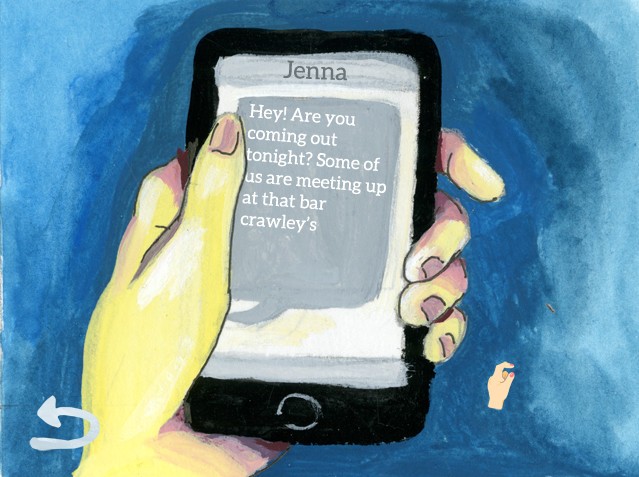
Freshman Year (PC)
We've covered Nina Freeman's brand of personal games before with both Cibele and Kimmy. Freshman Year, one of Freeman's earlier games, follows that mold as well. You play as a young woman at a bar, texting her best friend and killing time while she waits for said friend to show up. It's a nice little story that centers around texting, and it happens to be free. You can check it out here.
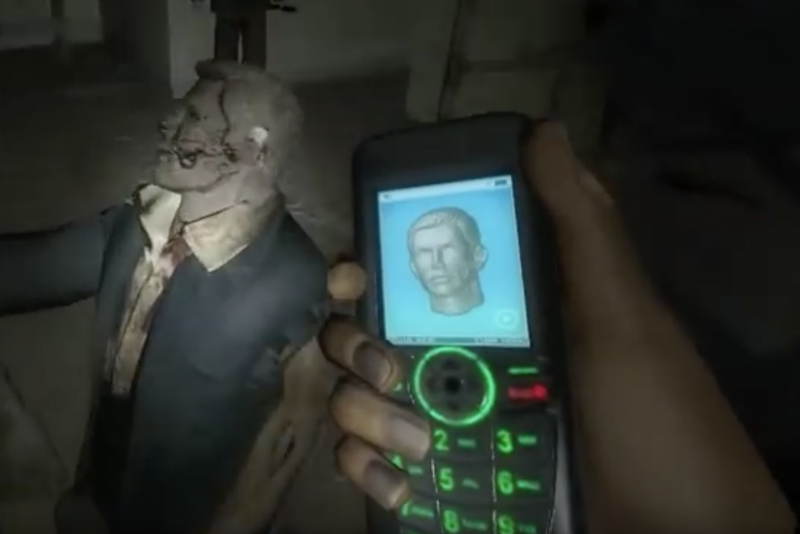
Condemned: Criminal Origins (Xbox 360, PC)
Condemned is an interesting first-person survival-horror hybrid from 2005 where you play a detective who slowly finds himself pursuing a serial killer and fighting off a bunch of psychos. The game’s strong opening has you investigating a crime scene with your cell phone’s light and a camera. Alongside a few good jump scares in that segment, the phone functions as a line of communication between you and your handler. While the phone itself might not be that special, its role as your one true solace in the darkened, dangerous buildings of Condemned makes it noteworthy.
The game received an 8.75 from us when we reviewed it. You can out our Replay episode of it here.

Catherine (Xbox One, PS3, 360)
Catherine may not carry the same renown or respect as Persona – though they’re developed by the same team and feature the same art style – but it’s got the weirdness to match. Casting the player as a man with commitment issues named Vincent, a surprising amount of the game takes place in the bathroom of a bar. During these segments, Vincent is often scrolling through his phone and receiving text and picture messages. He can send out responses that will affect his karma meter and his relationships with characters, which determines the ending of the game.
Cell phones play a huge part in many relationships, in both positive and negative ways, and Catherine’s use of the device as a gameplay mechanic and not window dressing is one of the more interesting applications in video games.
You can read our review of Catherine here.
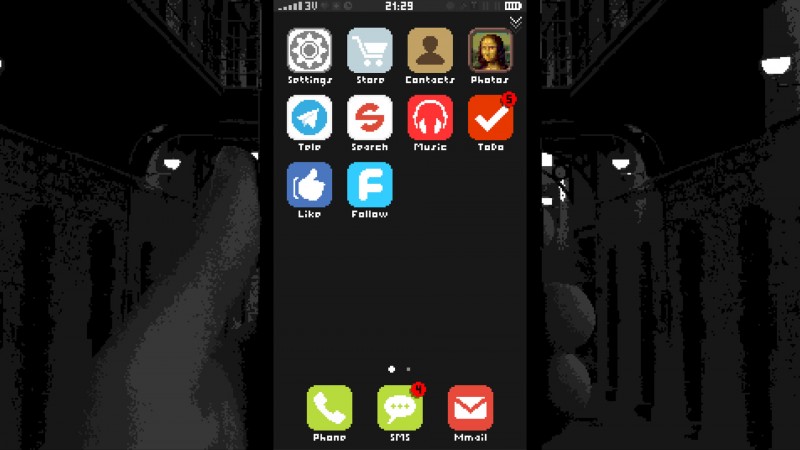
Replica (PC)
Like A Normal Lost Phone, Replica is an indie title where you the entire interface is limited to a cell phone. However, where A Normal Phone is a personal story, Replica is a thriller about terrorism and privacy. With 12 endings based on the choices you make while messing around with the phone's interface, Replica is worth checking out for its tense vibe, branching paths, and ambitions.
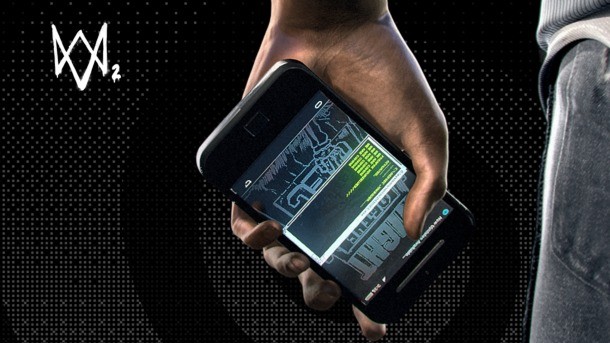
Watch Dogs (PS4, Xbox One, Wii U, PS3, 360, PC)
Watch Dogs is a divisive series, especially when it comes to storytelling. However, the games’ ability to let you use a cell phone to hack into objects around you is pretty nifty and surprisingly substantial. Watch Dogs 2 in particular gives you a lot to work with, letting you change stoplights when cars are pursuing you, to changing random citizens’ records so that the police will arrest them. There’s a lot of mischievous fun to be had in Ubisoft’s sandbox thanks to all the chaos you can cause with your phone.
You can read our review for Watch Dogs 2 here.

Get the Game Informer Print Edition!
Explore your favorite games in premium print format, delivered to your door.
- 10 issues per year
- Only $4.80 per issue
- Full digital magazine archive access
- Since 1991









